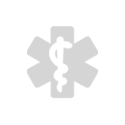Gastrointestinal bleeding testing in Cattolica
Find health labs to test for Gastrointestinal bleeding in Cattolica and compare all offers by prices and services.

FOBT Test by Synlab
Piazza della Repubblica, 6, 47841 Cattolica RN, Italia

test sangue occulto fecale con autoprelievo by innovabiohealth S.r.l.
Test at-Home / Self-testing
Featured
€35.00
€33.25 with our promocode
See Details

FOBT Test by Me Centro Mendel
Via del Mare, 8, 47843 Misano Adriatico RN, Italia
2.6 km

FOBT Test by Synlab
Viale Panoramica, 35, 47838 Riccione RN, Italia
5.1 km

FOBT Test by Farmacia Comunale Rimini N3
Via Antonio Guadagnoli, 46, 47923 Rimini RN, Italia
11.1 km

Fecal Occult Blood Test by Amfa S.P.A.Azienda Municipalizzata Farmacie Comunali
Via Flaminia, 48, 47923 Rimini RN, Italia
11.1 km

FOBT Test by Farmacia Comunale Rimini N6
Via Euterpe, 2, 47923 Rimini RN, Italia
11.1 km

FOBT Test by Synlab
Via Melozzo da Forlì, 6, 47923 Rimini RN, Italia
11.1 km

FOBT Test by Farmacia Comunale San Francesco
Via Michele Rosa, 3, 47921 Rimini RN, Italia
11.1 km

Fecal Occult Blood Test by Farmacia Comunale Rimini N2
Via Covignano, 154, 47923 Rimini RN, Italia
11.1 km

FOBT Test by Synlab
Viale Principe Amedeo, 11, 47921 Rimini RN, Italia
11.1 km

FOBT Test by Synlab
Corso Giovanni XXIII, 114, 47921 Rimini RN, Italia
11.1 km
Gastrointestinal bleeding - symptoms and how to test
A haemorrhage that begins in the gastrointestinal (GI) tract, also known as the digestive system, is referred to as gastrointestinal (GI) bleeding. Haemorrhaging in the digestive tract (GI) is not a sickness but a sign of another health problem. Acute gastrointestinal bleeding occurs suddenly and, at times, is very serious. Ages above 64, history of peptic ulcer disease, diabetes mellitus, and concomitant use of other antiplatelet agents, anticoagulants, nonsteroidal anti-inflammatory drugs, and steroids have all been identified as risk factors for gastrointestinal bleeding. A health care provider may draw blood from you and have it tested at a lab. A blood test might provide valuable insight if you've been bleeding heavily or suspect you have anaemia.








